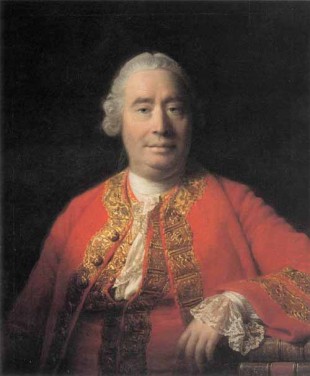
David Hume 300 år
David Owen, professor i filosofi ved University of Arizona, holder foredrag om David Hume (1711 - 1776), skotsk filosof, historiker, økonom og essayist, på Vitenskapsakademiet 7. april. Hume er spesielt kjent for sin erfaringsfilosofi og skeptisisme. Han regnes som en av de viktigste personene innen vestlig filosofihistorie. "Reason, Belief and the Science of Nature: Hume and the Limits of Explanation" er tittelen på Owens foredrag. Møtet starter kl 18.00 og er åpent for alle interesserte.
PROGRAM:
- Før foredraget holder Hans-Emil Lidén minnetale over Håkon Christie
- Professor David Owen, The University of Arizona:
Reason, Belief and the Science of Human Nature: Hume and the Limits of Explanatio - Kommentarer ved Camilla Serck-Hanssen og Raino Malnes

Abstract of the lecture:
Humes’s science of man, or human nature, placed harsh constraints on enquiry: nothing could go beyond experience. The methodology of this science was illustrated in Hume’s first law of human nature: all ideas are derived from impressions. Together with his associationism, these constraints resulted in an austere conception of reason, and of beliefs, which are the conclusions of reason.
Hume’s theory leaves little room for the investigation of what we might consider standard philosophical problems, e.g., the justification of our belief in the external world, of what constitutes good reasons for belief or action. Hume is more interested in explaining the content of those beliefs, what makes them beliefs, and the processes by which we come to hold them. Such explanations pretty quickly run up against the constraint of not going beyond experience. This lecture examines what role Hume’s conception of human nature plays in this story, and what sort of picture of human nature finally emerges. If this is correct, the philosophical significance of many of Hume’s famous arguments is rather different than usually supposed.